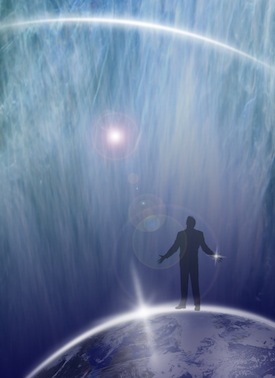Why Nobody Ever Asks If Irony Has Ruined Science Fiction, Charlie Jane Anders, io9, September 29, 2014
Every few years, there’s another essay insisting that irony is ruining culture. Hipsters and postmodernism have created an insincere world where nothing means anything. But you never hear anybody insisting that irony has ruined science fiction. That’s because irony is part of the creative life-force of the genre.
We tend to talk about irony in terms of a disconnect between a stated expectation and what actually happens — in other words, as a kind of failed futurism. But irony, more broadly, is about dislocation. And the description of types of irony in the introduction to the book Irony in Language and Thought (ed., Gibbs and Colston) seems like it could be a list of science-fictional story setups: “coincidences, deviations from predictions, counterfactuals, frame shifts, juxtapositions of bi-coherences, hypocrisy, etc.”
Anybody who writes about history, and then tries to imagine history continuing into the future in the same bewildering, illogical, bendy fashion is going to bake a certain amount of irony into the cake. That’s partly because storytelling is about humans, who use technology in ways that its creators never expected, and make choices that no rational observer would expect. The law of unintended consequences is fundamental to narrative irony.
The ironic twist is also part of the DNA of SF, from War of the Worlds onwards — H.G. Wells’ disease-ex-machina ending only really works as irony, rather than as straightforward narrative: they’re too big and powerful for us, but in the end they’re unexpectedly defeated by the tiniest of creatures.
![Henrique Alvim Correa [Public domain], via Wikimedia Commons Henrique Alvim Correa [Public domain], via Wikimedia Commons](http://crypticphilosopher.com/wp-content/uploads/2014/10/Correa-Martians_vs._Thunder_Child.jpg)
Photo credit: Henrique Alvim Correa [Public domain], via Wikimedia Commons.



 I came across this brief post as I was scrolling through Tumblr entitled
I came across this brief post as I was scrolling through Tumblr entitled